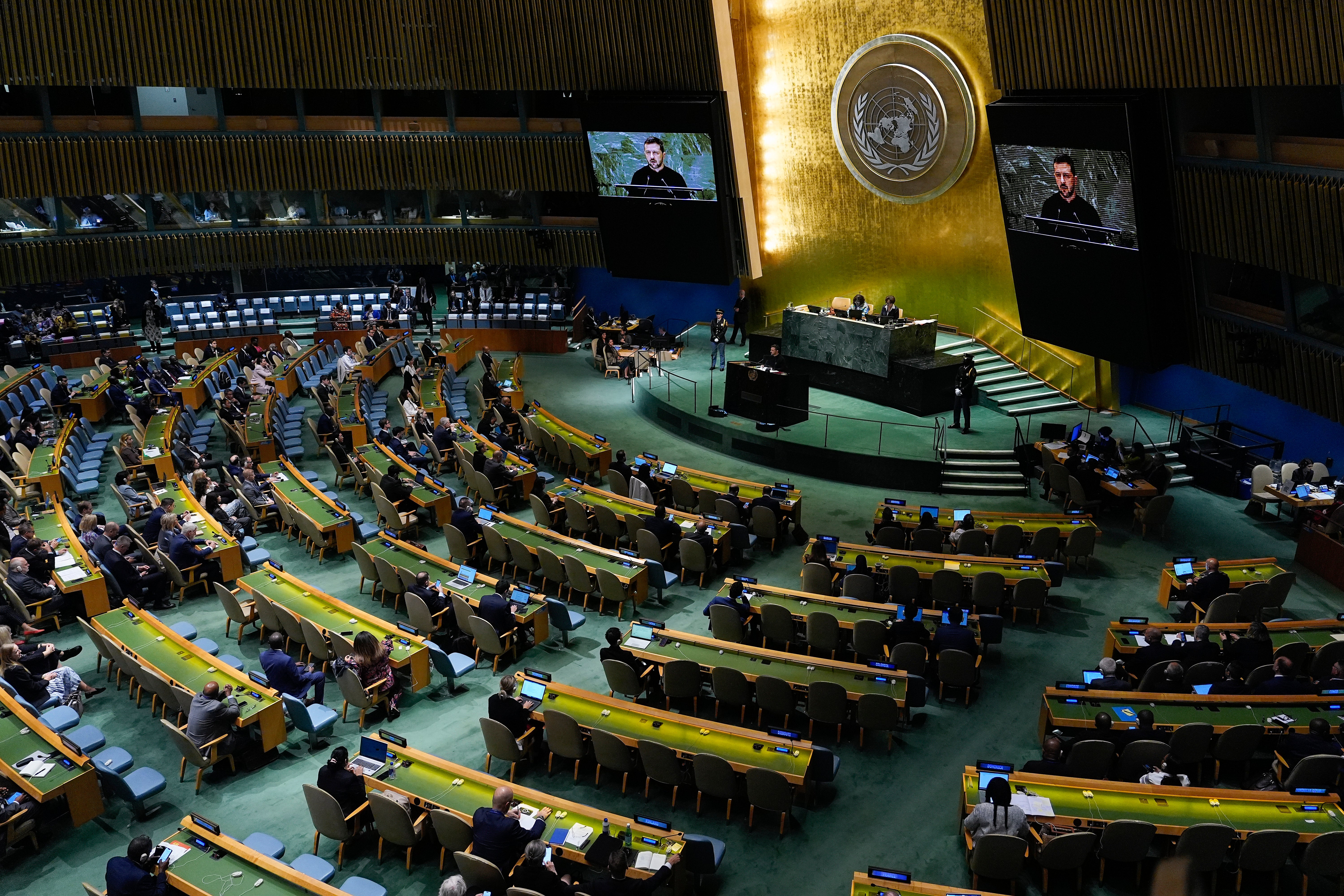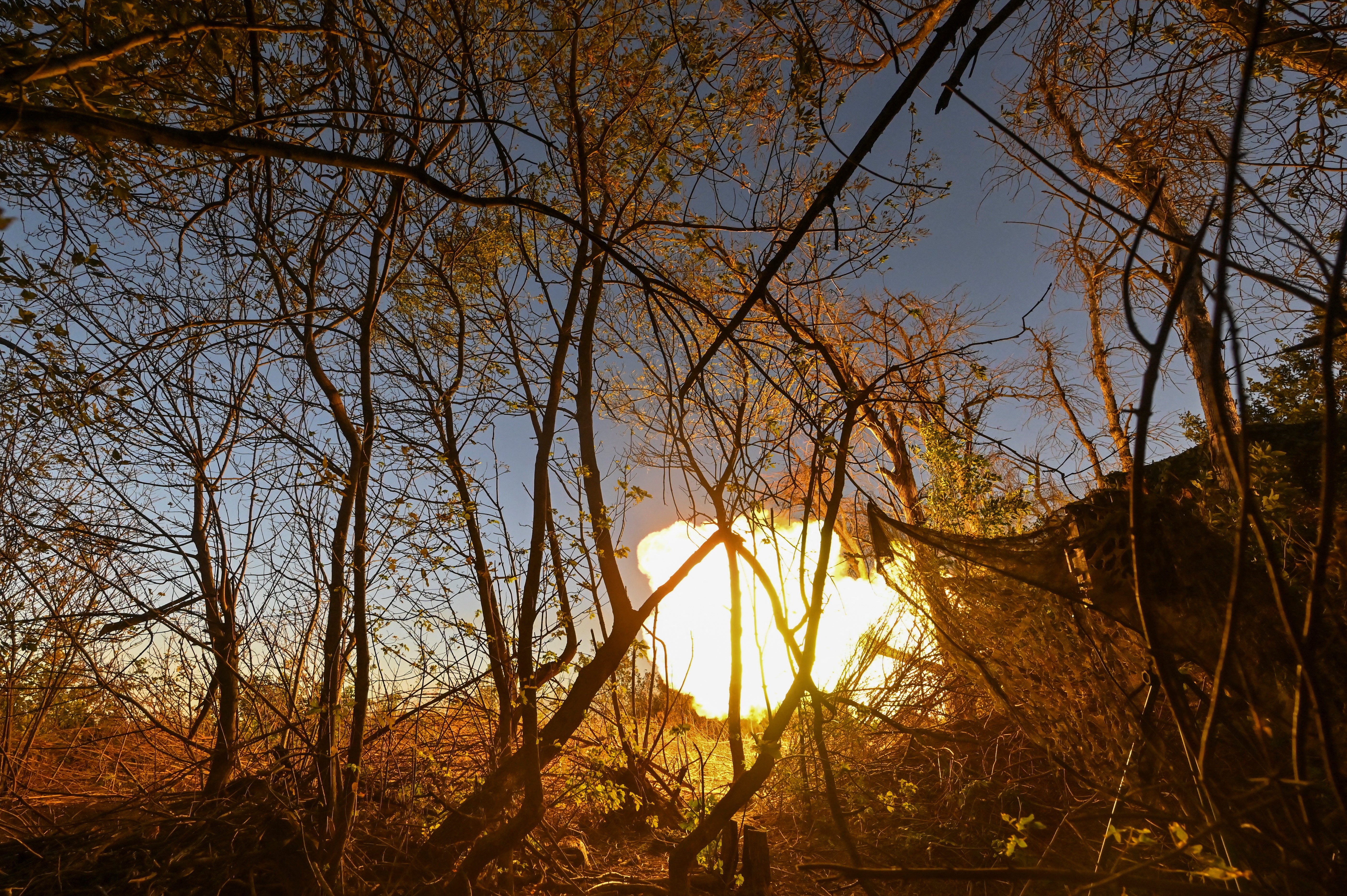This website uses cookies so that we can provide you with the best user experience possible. Cookie information is stored in your browser and performs functions such as recognising you when you return to our website and helping our team to understand which sections of the website you find most interesting and useful.
Your support helps us to tell the story
As your White House correspondent, I ask the tough questions and seek the answers that matter.
Your support enables me to be in the room, pressing for transparency and accountability. Without your contributions, we wouldn't have the resources to challenge those in power.
Your donation makes it possible for us to keep doing this important work, keeping you informed every step of the way to the November election

Andrew Feinberg
White House Correspondent
Ukrainian president Volodymyr Zelensky has urged world leaders to stand with Ukraine in the war against Russia as he presented his “victory plan” to the UN General Assembly.
At a time when he faces growing pressure from Western allies and some of his fellow Ukrainians to negotiate a ceasefire, Mr Zelensky said there is no alternative to the “peace formula” he presented two years ago.
The peace formula, among other things, seeks the expulsion of all Russian forces from Ukraine and accountability for war crimes.
“Any parallel or alternative attempts to seek peace are, in fact, efforts to achieve an out instead of an end to the war,” he said.
Mr Zelensky added Russian president Vladimir Putin is attempting to “break the Ukrainian spirit” by targeting his country’s energy infrastructure with deliberate attacks on Ukraine’s power plants and entire energy grid.
“This is how Putin is preparing for winter, hoping to torment millions of Ukrainians … Putin wants to leave them in the dark and force Ukraine to suffer and surrender,” he told the 193-member body.

He also questioned the “true interest” of a push by China and Brazil to end Russia’s war in Ukraine, telling the Assembly: “You will not boost your power at Ukraine‘s expense.”
“When some propose alternatives, half-hearted settlement plans, so-called sets of principles, it not only ignores the interests and suffering of Ukrainians ... it not only ignores reality, but also gives Putin the political space to continue the war.”
At the UN Security Council earlier in the week, Mr Zelensky argued that Russia needs to “be forced into peace”, saying there’s no point in pursuing peace talks with Mr Putin.
The Kremlin called the plan by Mr Zelensky to force Russia to make peace a “fatal mistake” that would have consequences for Kyiv.
Kremlin spokesman Dmitry Peskov said: “Such a position is a fatal mistake, a systemic mistake. This is a profound misconception that will inevitably have consequences for the Kyiv regime.”
Mr Peskov said Russia wants peace, but the issue cannot be forced, adding: “A position based on an attempt to force Russia into peace is an absolutely fatal mistake, because it is impossible to force Russia into peace.
“Russia is a supporter of peace, but on the condition that the foundations of its security are ensured.”

Mr Putin has been adamant peace talks will only begin if Kyiv abandons swathes of eastern and southern Ukraine to Russia and drops its Nato membership ambitions.
Meanwhile, the Russian president will chair a meeting of Russia’s Security Council on nuclear deterrence on Wednesday as Moscow weighs a response to Ukraine‘s requests that the US allow it to strike deep into Russia with long-range Western missiles.
On the battlefield, a Russian-guided bomb strike on Ukraine's eastern town of Kramatorsk killed at least two people and injured 19 more, the Donetsk region governor said.
“This is another war crime of the Russians and another sad reminder that there are no absolutely safe places left in the Donetsk region,” Vadym Filashkin said on the Telegram messenger.
Kramatorsk, which lies about 12 miles from the active combat line, regularly comes under Russian strikes.
Moscow denies intentionally targeting civilians in its invasion of Ukraine. It says its strikes on infrastructure aim to reduce Ukraine‘s ability to fight.



 Africana55 Radio
Africana55 Radio 
